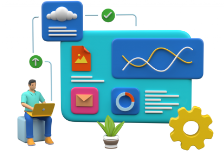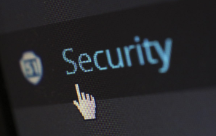Mastering the Role of Office Management
Managing an office may sound like a tricky job, but it is all about finding the perfect balance between all the sections. Since the epidemic has altered the nature of work, efficient workplaces are difficult to find, leading managers to focus more on their duties with their employees.
This is where a special set of skills, methods, and tools may be combined in a clear framework to help businesses achieve their objectives in the most effective way possible.

This blog will teach you the ins and outs of managing an office, from practical tips to creative strategies, helping you master the art of keeping your office efficient, productive, and a place where everyone loves to work.
We have a course about Office Management Fundamentals on Jobsland, chech this out.
Overview of Office Management
Key Responsibilities
Office management is very important for making sure everything in an office runs smoothly. It includes tasks like supervising administrative work, managing office supplies, communicating with different departments, handling mail, and making sure the work environment is good for everyone.
Office Managers are responsible for scheduling meetings, planning budgets, and making sure payments are made on time. They play a central role in ensuring that the whole company operates efficiently.
Core Objectives of Office Management
The main goal of office management is to keep the office running efficiently. This includes reducing office costs, improving workflow, and supporting the organization’s goals.
Being an Office Manager can be challenging because the job often involves solving problems to meet everyone’s needs. For example, assigning tasks to the right employees can help improve workflow and save time, but it’s important not to overload any one person.
The Office Manager’s primary goal is to assure the success and growth of an organization. This is accomplished by guaranteeing smooth operations, maintaining order, and ensuring good communication.
Historical Evolution of Office Management
Early Office Practices
Office work has come a long way since in early office practices, tasks were predominantly manual, with clerks and secretaries logging in data by copying, filing, and handling correspondences.

As a hierarchical system, offices had clear divisions of labor, with letters as the main way to communicate and paper-based records stored in files and ledgers. Although these methods were basic, they laid the groundwork for modern office management.
Modern Developments
With technology, office management has changed a lot. Now, office work is handled through computers and the Internet, using various software and applications. Modernisation brought changes through the use of digital communications tools, cloud-based storage and automated workflows. These advancements have made tasks easier for administrators by reducing repetitive work. Using computers and other technological tools helps in effective office supervision and staff interaction, and whether working on-site or remotely.
Essential Skills for Office Management

-
Organizational Skills
Importance of Staying Organized
Being organized is key to getting office work done on time, using resources wisely, and boosting productivity. Office Managers need to keep track of records, schedules, and tasks to avoid chaos and confusion. Having easy access to important items and information helps save time and ensures an efficient working environment.
Techniques for Effective Organization
Some of these techniques include having a highly detailed calendar, utilizing software to plan tasks, and having filing systems for both physical and digital documents. Additionally, it can be useful for Office Managers to regularly declutter their offices and create checklists for scheduling daily, weekly, and monthly tasks.
-
Communication Skills
Verbal and Written Communication
Good communication is crucial for Office Managers. Whether talking to employees, writing emails, or creating reports, clear and effective communication is important. It helps in coordinating activities, giving instructions, and updating everyone on important details.
Interpersonal Skills
Interpersonal skills are also important for Office Managers. Building positive relationships with colleagues helps maintain a good team atmosphere. Office Managers need to be good listeners, approachable, and able to handle conflicts well, ensuring a supportive and productive work environment.
-
Leadership Skills
Leading and Supervising Teams
Office Managers need leadership skills to oversee staff and guide them effectively. This includes motivating the team, assigning tasks fairly, and making sure everyone works towards the same goals. Good leadership ensures that the team performs well and that office operations run smoothly.
Motivating and Inspiring Employees
An important role of an Office Manager is to motivate and inspire employees. Recognizing good performance, encouraging professional development, and creating a positive work environment help employees feel valued and motivated to do their best.
-
Time Management
Prioritizing Tasks
Office Managers often have many tasks to handle, so time management is crucial. They need to identify the most important tasks and prioritize them to meet deadlines. Managing time well helps ensure that urgent and important tasks are completed on time.
Balancing Multiple Responsibilities
Office Managers must juggle various responsibilities, from administrative tasks to supervising staff. Effective time management allows them to balance these tasks and delegate them appropriately, ensuring that everything gets done efficiently.
-
Technical Proficiency
Proficiency in Office Software
Modern Office Managers need to be skilled in using office software like word processing programs, spreadsheets, and email clients. These tools help them complete tasks quickly, from preparing documents to communicating with staff. Without these skills, managing office work would be much harder.
Adapting to New Technologies
Office Managers should be open to learning and using new technologies that can improve office operations. Keeping up with the latest tools and trends helps the office stay competitive and efficient.
Strategies for Effective Office Management
Setting Clear Goals and Aligning Activities
Office Managers set goals and objectives that support the overall goals of the organization. By understanding the company’s mission and strategic plans, they can create actionable objectives in the office that benefit the entire organization.
When defining and aligning office activities with goals and objectives, Office Managers will be able to set targets in a manner that can ultimately impact the organizational results.
Measuring and Tracking Progress
After setting goals, it’s important to measure and track progress. Office Managers should use key performance indicators (KPIs) and regular check-ins, such as weekly team meetings, progress reports, and annual performance reviews to see how well the team is doing and where adjustments are needed.
Tracking helps the office staff in focusing their efforts and improving their performance in order to meet higher targets within a given time frame. Regular communication, feedback, and evaluation can help the office team stay on track to fulfill their objectives.
Streamlining Office Processes
Harvard Business Review states that streamlining office processes can save employees up to 15% of their work time. Office Managers should analyze the current workflow, to figure out where delays happen, and apply solutions to improve efficiency.
This could involve changing daily routines, using resources differently, and getting rid of unnecessary steps. It ensures that work is completed on time and that the office runs smoothly.
Utilizing Automation Tools
There is hardly a need to work with an inefficient tool any more when you can opt for the most effective one. Fortunately, automation tools exist to help manage offices efficiently by replacing humans with repetitive tasks. Office Managers should consider which tasks can be automated, like scheduling or data entry, to free up time for more strategic work.
By using tools that allow staff to have an automated response, for example, automated email response or communication via project management software, inputting and processing data can be done much faster, resulting in fewer errors. Automation reduces workloads, which means employees now have time to think through and complete more strategic tasks.

Enhancing Team Collaboration
A collaborative work environment is important for a well-functioning office. Offices that promote team collaboration are 5 times more likely to perform at higher levels.
Office Managers should encourage teamwork and create opportunities for employees to work together through group activities, team projects and open office spaces. This helps boost creativity, problem-solving, and overall job satisfaction.
Effective Communication Channels
Communication is very important when working together. A good office manager has to have a well-organized and guaranteed communication platform, such as regular team meetings, or instant messaging apps. This keeps the channel for information flowing, where all the team members can hear and see, preventing any misunderstanding.
Budgeting and Expenses & Resource Management
The best way to organize office resources is by keeping and saving costs. Office Managers should be responsible for managing budgets and costs. They need to keep track of costs and ensure that resources are used efficiently. This helps provide the necessary tools and supplies for staff while keeping expenses under control.
Maintaining Office Supplies and Equipment
Keeping track of office supplies and equipment is another important task. It is important for Office Managers to constantly keep track of inventory levels, reorder as needed, and make sure that every piece of equipment is in good operating condition. Offices or businesses will suffer from all these issues if not acted upon beforehand.
Promoting a Positive Office Culture
A positive office culture where everyone feels respected and valued is crucial. Office Managers should strive to make the Office a place that demonstrates positivity and focuses on inclusivity, addressing matters such as diversity, communication, and equal opportunities.
According to McKinsey & Company, promoting diversity and inclusion can boost team performance by 35%. Office Managers should establish a solid space where employees with diverse cultural backgrounds can feel at home and be valued members of a team.
Recognising and Rewarding Achievements
Rewarding your employees for their achievements has a positive effect on the office spirit. To create a positive atmosphere in the Office, it is recommended that office managers point out their teams’ achievements frequently. It could be with a formal certification program, rewards or verbal praise. Rewarding staff for their achievements significantly encourages them to make further progress, attaching more value to them and making them feel useful.
Overcoming Common Challenges in Office Management
Handling Conflicts
When conflicts arise, it becomes important to tackle the issue in order to keep things pleasant for everyone in the Office. Due to the diverse nature of a typical office staff, office managers must develop strategies to resolve conflicts and act quickly when problems occur. These problems could be related either to employee relationships or productivity.

Conflict Resolution Strategies
When it comes to resolving relationship issues within the Office, it is essential to address the root cause of the conflict and provide a space for all involved parties to discuss the problem at hand. This allows everyone to come to a mutual agreement that benefits the parties involved.
For those in leadership positions, offering some flexibility to reach an agreement is quite beneficial. Conflicts must be resolved before they escalate, thus preserving a cordial working relationship.
Maintaining a Harmonious Work Environment
Office Managers can help keep the work environment peaceful and productive by addressing conflicts early and promoting a culture of respect. Regular team-building events and one-on-one sessions can also help employees feel comfortable sharing their concerns.
Stress Management Techniques
Everyone in the Office works best when they can control the stress in their lives. Office Managers should promote stress management, such as incorporating mindfulness meditation, scheduling regular breaks, and creating wellness programmes. When employees are able to maintain balance in their work life to protect their mental health, their performance can properly reflect it.
Promoting Work-Life Balance
Encouraging work-life balance is important for preventing burnout and maintaining productivity. Corporate Wellness Magazine found that offices supporting work-life balance see a 20% increase in job satisfaction. Office Managers can support this by offering flexible work hours and respecting personal time.
Office management should also have schemes that support employees’ work-life balance; these schemes will enhance employee satisfaction and retention rates at the workplace.
Adapting to Organizational Changes
Being adaptable is a key competency for Office Managers. Getting the team through change can be demanding, but it also needs to be done regularly. Good communication and support are essential for helping employees adjust to these changes.
Embracing New Technologies
The market and technology are changing fast. Staying updated with new technologies is important for office efficiency. Office Managers should be open to adopting the latest technology and bring new tools that can streamline and improve operations.
Providing training and support to new technologies further solidifies the team’s adaptation process. It enables them to fully benefit from new technologies.
The Role of Technology in Office Management
Benefits of Using Management Tools
Management tools offer many advantages for office administration. They help manage employee scheduling, track work tasks, maintain important documentation, and communicate with all staff members.
Office management software is extremely beneficial because it minimizes labor and mistakes, freeing up time for everyone, particularly for bringing in new clients and completing tasks as quickly and correctly as possible. Real-time data and statistics assist Office Managers make the best decisions on how to improve workflow efficiency.
Popular Office Management Software
Different office management software meets certain needs. An office may require office management software for document creation (like MS Office 365), email management (like Google Workspace), task/project management (like Trello and Asana), or communication (like Slack and Microsoft Teams).
The choice of software is determined by what the office needs and what features make it a better experience for workforce enhancement.
Digital Communication Tools
Zoom and Google Meet help to make remote meetings possible through video conferencing. Slack and Microsoft allow teams to communicate through shared channels and make communication more real-time.
Such tools improve communication between team members of an organization regardless of their location through instant messages, video conferencing, and file sharing; which leads to building better connections and creating a more collaborative work environment.
Choosing the Right Tools for Your Office
Choosing an appropriate communication tool to set up in an office requires considering exactly what your team needs or prefers for their tasks. Some relevant questions to consider:
- How do new communication devices require individuals to perform their tasks (i.e., what features are necessary)?
- Would the new tools integrate easily with the existing infrastructures in the Office, enabling the transition?
- What would be an effective communication tool?
- Do all team members want to use the device?
Engage team members early on in the decision-making process to get their input, thereby ensuring everybody is satisfied with the selected tool. Periodically assess communication-technology use to make sure your Office is using the best and most effective technology available.
Data Management and Protecting Sensitive Information
Office managers must develop solid data management practices which protect sensitive information within office establishments and the environment. To secure data, the administrative or financial officer in charge of data management must ensure that the Office has secure storage solutions that are not breached or hacked. For instance, using a safe for storage solutions.
Other precautions include using access controls to limit access to storage areas and using encryption to protect data. Regularly auditing and updating security approaches is also vital in sealing security gaps and safeguarding against data leaks. Employee education is crucial in ensuring a safe data operating environment.
Implementing Data Security Measures
Providing data security in the Office involves both technology and policy. To safeguard the information stored in digital form, the Office Managers have to install firewalls, antivirus software, network filtration, and secure network connections. It will protect your system from any kind of external threat.

Implementing policies like regular password changes ,data backups, and user access control also helps keep valuable information safe from any type of threat. A regular programme of staff training and awareness may help to understand the importance of data security and to keep the Office safely secure against external threats.
Career Development for Office Managers
Training and Certifications
Office Managers who wish to further their careers need the relevant certifications and participation in Continuing Professional Development (CPD) to climb up the career ladder. CPD must be taken on a regular basis to keep up with the industry practices, remain competitive in the current market, and master new job opportunities.
Keeping up-to-date through training courses, workshops, conferences or seminars, as well as receiving certificates such as Certified Administrative Professional (CAP) or Project Management Professional (PMP), demonstrates a commitment to innovation and excellence in the workplace.
Professional Development Opportunities
Office Managers can pursue various professional development opportunities, such as workshops, online courses, certifications, and conferences. These opportunities help them gain new skills, network with other professionals, and stay current with industry trends. Investing in development improves not only the individual, but also the office’s efficiency.
Networking and Professional Associations
Networking is essential for the career growth of an Office Manager. A professional network gives you access to information, resources, and support. It can open employment opportunities and form professional relationships.
Individuals currently working in the industry can share their experiences, offer new insights, and establish connections. Attending business events, participating in online forums, and becoming a member of professional organizations are all examples of core networking activities.
Joining Professional Organisations
Becoming a member of professional associations, such as the International Association of Administrative Professionals (IAAP) or the Society for Human Resource Management (SHRM), can provide Office Managers with resources, certifications, and other membership benefits. These associations offer valuable tools and information to help Office Managers excel in their careers.
Pathways for Career Growth
Office Managers have the potential to advance into higher positions within the organization, such as managing larger teams or multiple departments for the organization.
Transitioning to Senior Management Roles
- With experience and proven success, they can move into roles such as Operations Manager, HR Manager, or even higher executive positions. To achieve this, Office Managers should focus on developing their leadership skills, understanding the broader business environment, and consistently delivering results.
- Advancing to senior management careers involves the added experience of developing advanced-level skills and strategic planning. A great way to prepare for a senior management career as an Office Manager would be taking on various projects that will demonstrate the ability to lead and manage more complex tasks.
- Higher education is also a way to enhance qualifications for senior leadership roles. For instance, an Office Manager can earn a Master’s degree in Business Administration (MBA), which will further develop their qualifications for senior positions.
Continuous learning and the ability to explore new possibilities for skills development are the best ways to make a transition to senior management careers and achieve personal goals.
The Future of Office Management
Remote Work and Hybrid Models
Over 70% of office workers now work remotely at least once a week. The rise of remote work and hybrid office models is reshaping how Office Managers operate. They now need to manage teams that may be spread across different locations and time zones. This trend requires adapting to new tools and methods for communication, collaboration, and supervision.
Emphasis on Employee Well-being
There is a growing emphasis on employee well-being, with more organizations recognizing the link between a healthy work environment and productivity. Office Managers are playing a key role in promoting wellness programs, offering mental health support, and ensuring that the workplace is conducive to both physical and mental health.
Artificial Intelligence in Office Management
Artificial intelligence (AI) is becoming a vital tool in office management. AI can automate routine tasks, analyze data for decision-making, and even assist in managing schedules and resources. Office Managers who embrace AI can improve efficiency and free up time for more strategic activities.
Mastering the role of office management takes more than simply tracking daily operations. Technology, strategic planning, and constant professional development are all required for effective office management.

The usage of office management software, regular communication improvements, and strong data security measures are all critical steps toward building efficient and productive working environments. CPD, networking, and advancement within office management positions are all necessary to guarantee that office managers are innovative, successful, and competitive in their field.
Office management is a challenging but rewarding profession that pushes managers to expand their skill sets and, in turn, leads to positive outcomes both for them personally and for their organizations.
